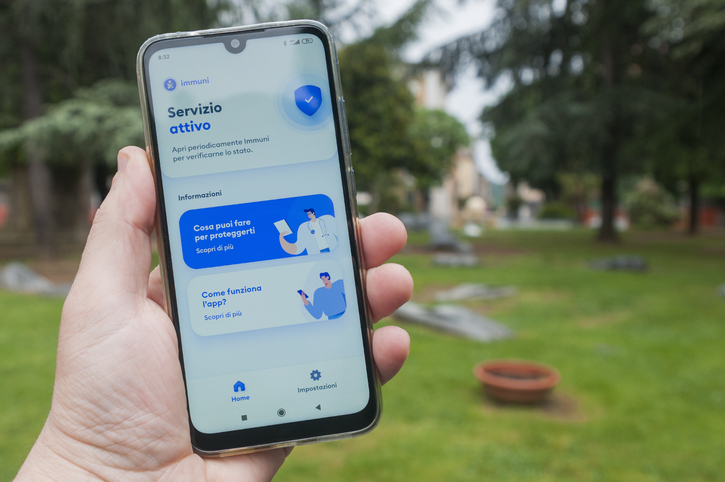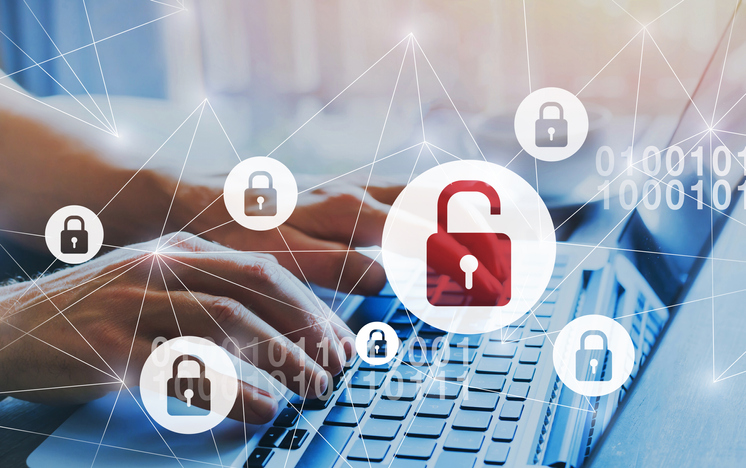According to the World Health Organisation, contact tracing is the ‘process of identifying, assessing, and managing people who have been exposed to a disease to prevent onward transmission’. In layman’s terms, it helps to identify infected persons, and then trace back who they recently interacted with. This systematic approach helps in breaking the chain of transmission of infectious diseases and hence is an essential public help tool for controlling infectious disease outbreaks. Therefore with the ongoing pandemic, new and better contact tracing tools have been developed to ‘flatten the curve’. This is where contact tracing apps come in. These digitally trace the infected person’s interactions and take measures to inform the authorities as well as the people the infected person has been in contact with.
While coronaviruses are actually a group of viruses, COVID-19 is caused by the SARS-CoV-2 virus and spreads from person to person through droplet and contact transmission. Therefore, to control its spread, it’s imperative to break the chains of human-to-human transmission. Contact tracing is one such method that helps in case identification, isolation, testing, and care. It, along with quarantine, are critical activities to reduce transmission and control the epidemic. As for COVID-19, contact tracing will require identifying persons who may have been exposed to COVID-19, and following them daily for 14 days from the last point of exposure.

But manual contact tracing is a laborious and slow process since it relies too much on physical interviews. Thus, many countries in the world along with their respective health agencies are launching contact tracing apps to automate the process of retracing a person’s movements. These apps, installed in a smartphone will also find out if and when they might have been infected, and notify them at the earliest possible stage. While the efficacy of these apps is yet to be proven, their modelling suggests that they can only help if enough of the population uses them.
Check Out These Different Contact Tracing Apps Launched By Different Countries In The World
Australia
Australia has rolled out its Bluetooth-tracking COVIDSafe app, which is Bluetooth-enabled. Its use is completely voluntary and aims to help the state and the respective territory health officials quickly contact people who may have been exposed to COVID-19.
China
The Chinese government has launched several contact tracing apps that use either direct geo-localisation via cellphone networks, or data compiled from train and airline travel or highway checkpoints. The use of these apps is systematic, compulsory, and said to have played a key role in allowing Beijing to lift the lockdown and halt contagions, with no new deaths reported since mid-April.

South Korea
Instead of contact tracing apps, South Korea uses other surveillance methods which have been credited with helping curtail the outbreak. Although South Korea is seen as one of the most successful countries at tackling COVID-19, most of the measures taken have been termed aggressive and invasive by many. The country has issued mass cellphone alerts announcing locations visited by infected patients and ordered a tracking app which is to be installed on the phone of anyone ordered into isolation.
India
The government of India launched its contact tracing app Aarogya Setu (translating to ‘bridge to health’) app, which uses Bluetooth as well as GPS signals to trace devices, and collects a lot of sensitive data like names, birthdates, and biometric information. India’s contact-tracing app has also received a lot of backlash over data protection.
Switzerland
Switzerland’s SwissCovid is the first Google-Apple-based coronavirus contact-tracing app. It will be using Bluetooth to exchange keys between phones, where if a user tests positive for COVID-19, they can inform the app. The app will further alert other users if they were in close proximity (less than two metres) of the infected person for a prolonged period (more than 15 minutes).
Saudi Arabia
Tabaud COVID-19 KSA has been developed with international standards and is available on both Apple and Google platforms. It uses Bluetooth and encryption technology to detect other phones that are equipped with the app, determine their distance, and notify users of potentially dangerous encounters. Designed by the Saudi Authority for Data and Artificial Intelligence, the app notifies people in heavily populated areas of others who have contracted Covid-19 over the course of a 14-day period.
United Arab Emirates
The TraceCovid app launched by UAE can be downloaded and installed by anyone living in the country using a Bluetooth-enabled smartphone running on Android or iOS. This mobile app uses Bluetooth to pick up signals from nearby mobile phones that also have the app installed. The app requires access to location services on the phone to function effectively.
Israel
In March, Israel’s health service launched a contact tracing app called Hamagen, Hebrew for “the shield”. It uses a phone’s GPS data and is available in five languages.
US
Although the United States has no national tracing plan under consideration, some states have announced their own contact tracing apps. Three US states Alabama, North Dakota, and South Carolina, say they have adopted Apple-Google technology, while other states have developed their own systems, such as Rhode Island’s Crush Covid app, which gathers GPS data.
Iran
In the Middle East, Iran has been the worst-hit country. With cases that have now reached, the country has launched a COVID-19 screening app called Mask. However, there have been many surveillance-related controversies regarding the app.
UK

A contact-tracing app NHS COVID-19 App: NHSX has been launched by the UK and is designed to let people know if they have been in close contact with someone who later reports positive for Covid-19. This app keeps a trace on people who have been in close contact through Bluetooth signals that transmit an anonymous ID.
Hong Kong and Taiwan
Both countries have managed to limit deaths despite their proximity to China, using GPS and Wi-Fi to keep strict tabs on people in quarantine. Officials say the actual identities are encrypted, and anyone receiving an alert will not know who posed the potential contagion threat.
Singapore
Singapore’s voluntary contact tracing app TraceTogether was launched on March 20, by the government in the hopes of creating a “community-driven” response to the virus. The app has since been downloaded by a fifth of its 5.7 million people. It uses Bluetooth and the mobile number of users in order to track their proximity to other devices. While it does not use location data, it exchanges temporary encrypted user IDs in order to know who a device came into contact with. The encrypted IDs can only be decoded by the Ministry of Health, which holds the only decryption key.
France
The French government has recently released its voluntary contact-tracing app StopCovid which is completely anonymous and temporary. For the development of this Bluetooth-tracing app, France denied Google and Apple’s help stating that the risks of misuse of the data are too high.
Austria
One of the first European countries to spring into action, Austria implemented the use of the tracing app project DP3T. The technology of the app is based on Bluetooth identifiers and the handling of the data is transparent, as well as voluntary.
Qatar
Qatar’s contact-tracing app Ehteraz has come into force. It uses a mixture of GPS and Bluetooth technology to track Covid-19 cases and warn people who may have been exposed to an infectious person. The use of the app is mandatory and not having the app installed could lead to a maximum fine of $55,000 or three years in prison.
Italy

Italy has launched a contact tracing app called Immuni which is designed to help the country manage phase two of the coronavirus crisis. This voluntary Bluetooth app was developed by Milan-based startup Bending Spoons.
A Public Health Tool Or A Tool To Breach Privacy?

While the overall goal of the contact tracing apps has been to slow the rate of infections and to change the course of this pandemic, there have also been legitimate privacy concerns. These apps are believed to be a front for many law enforcement and spy agencies that can easily track people without consent via smartphones phones, surveillance cameras, and other methods. Many of these GPS tracking apps are used to monitor citizens’ locations and gauge the risk of infection. But one cannot deny that widespread GPS tracking in the world raises privacy concerns that could lead to legal challenges in some countries. And due to these concerns, many are skeptical about putting their trust in these apps which can exploit their personal information by authorities or even third parties, despite pledges that information will be kept out of reach.
Also Read: The Future Of Travel: What To Expect Post COVID-19


